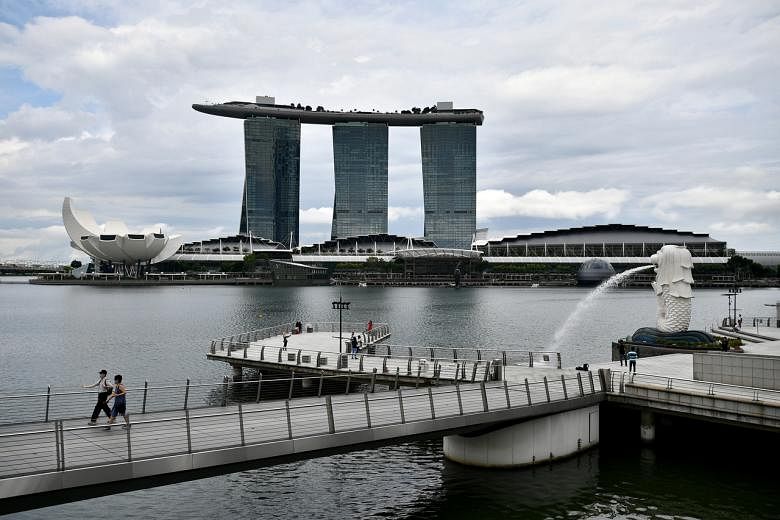SINGAPORE - Singapore has a good chance of balancing its budget during this term of government if economic recovery goes as expected, said Deputy Prime Minister Heng Swee Keat on Sunday (Feb 21).
He noted that the trajectory of the recovery will depend on the course of the pandemic, but with vaccination exercises taking place globally, there is hope for the economy to gain strength in 2021.
The Government hopes to balance its budget over the next four to five years especially since it has drawn significantly on past reserves - a total of $53.7 billion since last year, said Mr Heng, who is also Finance Minister. "But I'm hoping that as businesses resume, as income resumes, we can get back to a balanced budget," he added.
After having to present five Budgets last year as the pandemic unfolded, he hoped he will have to do only one this year, which would be a sign that the situation has stabilised. But the Government is ready to react should there be a need to, he said.
Speaking on a Channel 5 programme, Mr Heng addressed questions on this year's Budget, focusing on themes such as Singapore's green ambitions and support for businesses and workers.
Increasing the goods and services tax (GST) rate from 7 per cent to 9 per cent will support government revenues in the coming years, especially as recurrent spending in areas like healthcare is expected to go up as Singapore's population ages, he said.
Mr Heng pointed out that the Ministry of Health is receiving the highest allocation of funds among all ministries this year, and its allocation will continue to grow as healthcare needs will rise.
In his Budget speech on Feb 16, Mr Heng said the GST hike will take place between 2022 and 2025, and sooner rather than later.
On Sunday, he reminded Singaporeans of measures in place to cushion the impact of this hike, citing the $6 billion Assurance Package committed in Budget 2020, that would see adult Singaporeans receiving cash payouts of between $700 and $1,600 over five years.
The payouts would be equivalent to not paying the hike in GST for 10 years for the lowest 20 per cent of households, and five years for the average household, he said.
Singapore's system of taxes and benefits is a progressive one, Mr Heng added, citing how in 2020, the top 20 per cent of Singaporean households paid 56 per cent of taxes and received 11 per cent of benefits, while the lowest 20 per cent of households paid 9 per cent of taxes and received 27 per cent of the benefits. "Our system has been designed over the years to tilt our support... to those with greater needs, and we continue to observe this principle," he said.
He added that income inequality measured by the Gini coefficient, which the Government had been tracking since 2000, was at a historic low last year due to massive transfers.
Mr Heng also highlighted how rebates have been put in place to help offset the costs motorists incur with the recent petrol duty hike.
Those who rely on their vehicles for a living get rebates which are equivalent to not paying the rise in petrol duty for a year, while other motorists will get support of about two-thirds their expected cost rise.
Mr Heng said Singapore and its people must always be prepared for change, but said that the future is full of promise.
"What we must do is to come together, put our minds together, our hearts together, our hands together and say, well, how do we work together to seize these opportunities," he said.
"There will be many, many new opportunities that will come out of this pandemic, and Singapore is in a very good position to do that."


